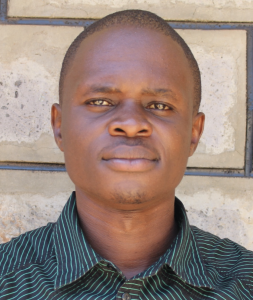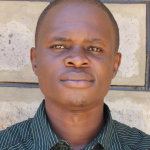Chepsaga Primary School's 272 students and 14 staff members have no reliable water point in their school compound.
There is a tap stand on the school grounds, but the municipal water that should flow from it is not reliable. For the last six months, there has not been a single drop of water from the tap, which forces students to fetch water outside the school compound from the river.
But collecting water from the river is a dangerous and exhausting task.
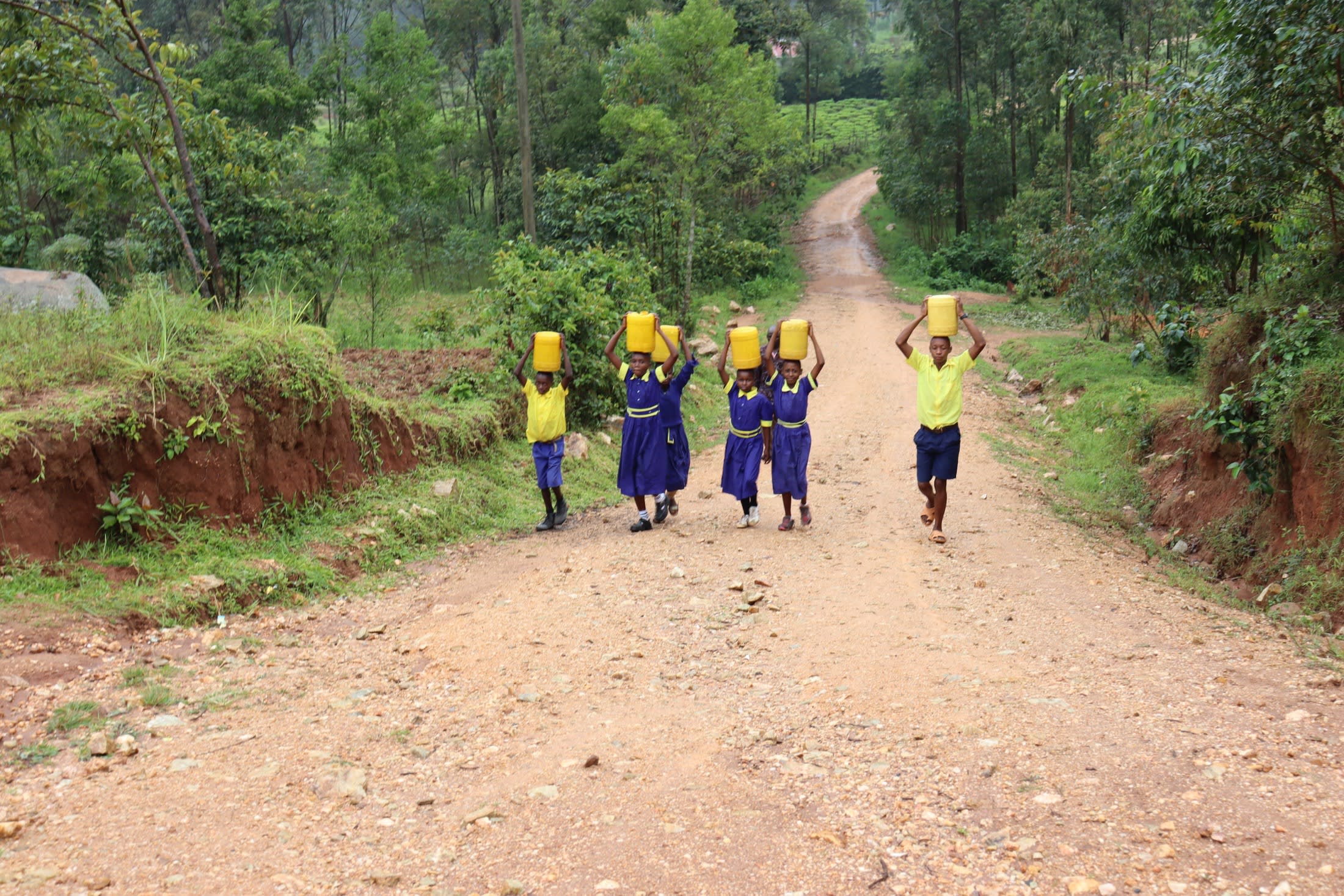
"Going to fetch water at the river is always risky, especially during the rainy season, as the river does swell. When one is not keen, there are high chances of being swept [away] by the waters. I have twice fallen victim," said 12-year-old student Sylvia M., shown below fetching water.
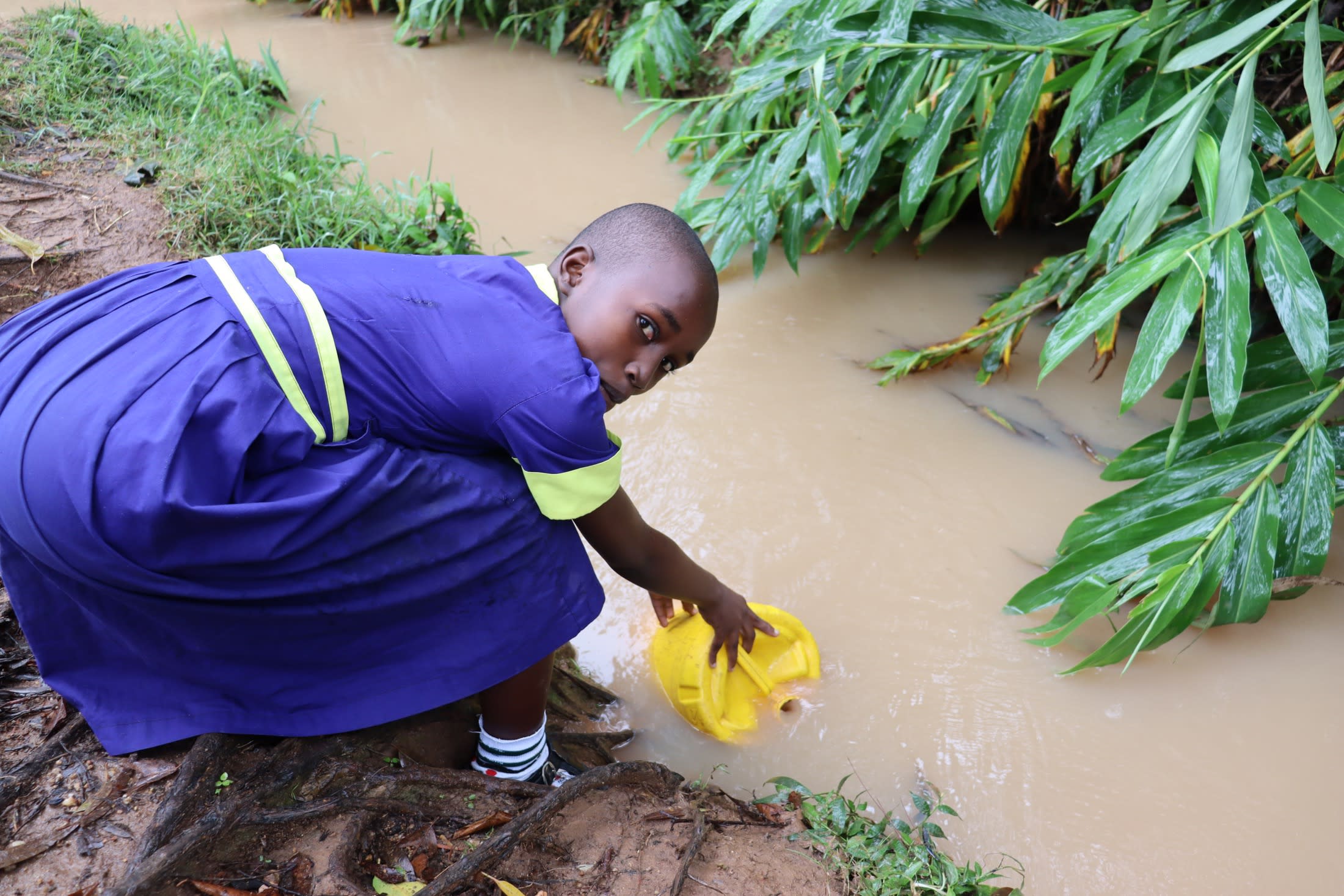
Water to be used at the school is collected throughout the entire day, causing students to miss valuable time in class. And sadly, in the long run, the water they work so hard to collect ends up causing harm because it is contaminated. Absenteeism is an issue for students because they fear the burdensome task of going to fetch water and because they often suffer from water-related infections.
"We are endangering the lives of our students whenever we request them to go fetch water at the river," said headteacher Tom Idiong'o, at the river below. "Whenever a student gets injured, it does come back to me, the head of the institution. On several occasions, I have been condemned by the parents of the school and the entire village for the neglect."
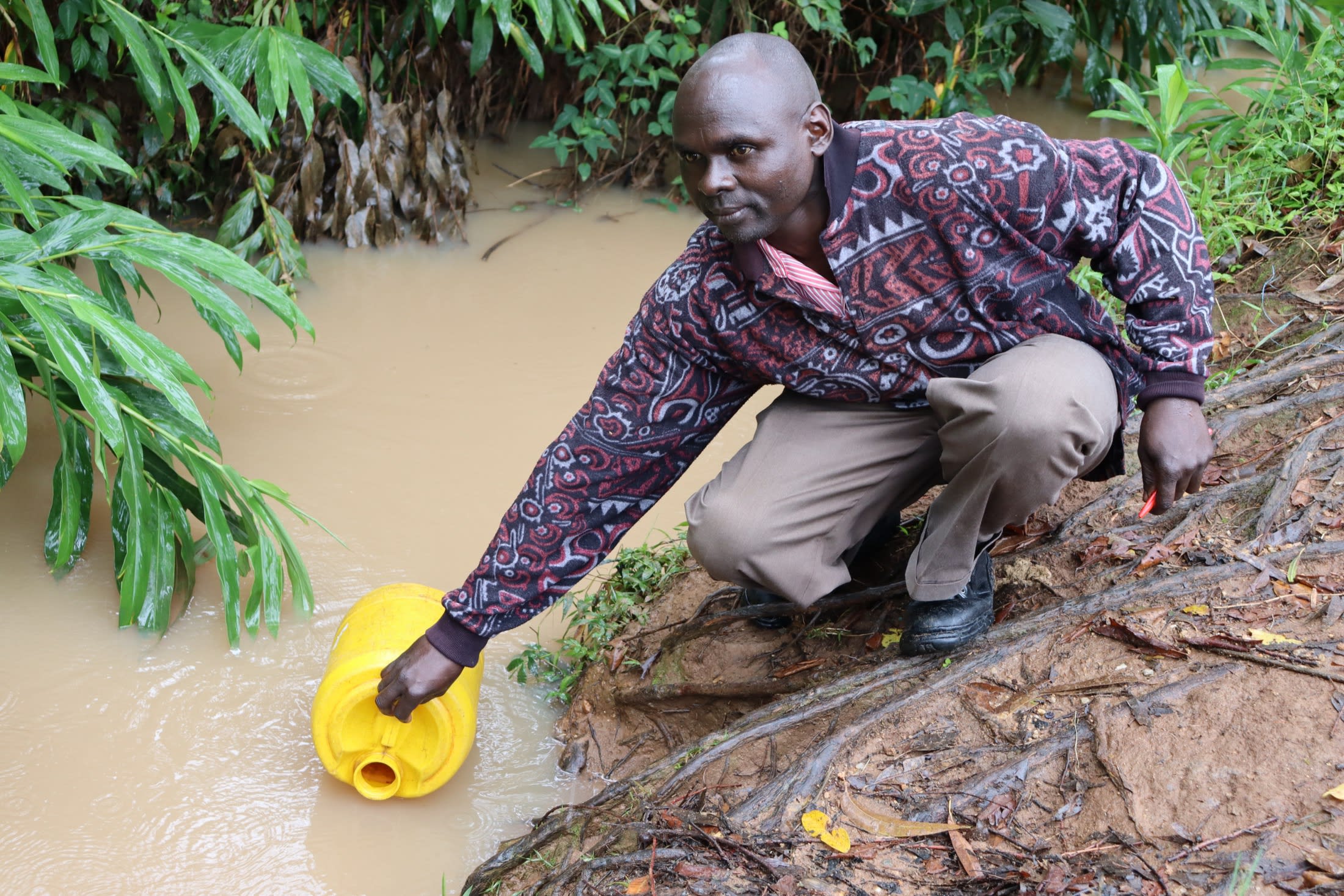
Installation of a well will allow everyone to access clean, safe, sufficient water directly in their compound and hopefully give students the time and freedom to focus solely on school.
What We Can Do:
New Well
We conducted a hydrogeological survey at this school and the results indicated the water table beneath it is an ideal candidate for a borehole well. Due to a borehole well's unique ability to tap into a safe, year-round water column, it will be poised to serve all of the water needs for this school's large population, even through the dry months.
The school will help collect the needed construction materials such as sand, rocks, and water for mixing cement. They will also provide housing and meals for the work team, in addition to providing local laborers. We will complement their materials by providing an expert team of artisans and drilling professionals, tools, hardware, and the hand-pump. Once finished, water from the well will then be used by the school’s students and staff for drinking, handwashing, cooking, cleaning, and much more.
Handwashing Stations
The student health club will oversee the two new handwashing stations we will provide, and make sure they are kept clean and in working condition. The club leaders will fill the handwashing stations with water daily and make sure they are always supplied with a cleaning agent such as soap or ash.
VIP Latrines
We will construct two triple-door latrine blocks using local materials that the school will help gather. Three doors will serve the girls and three doors will serve the boys. All of these new latrines will have cement floors that are designed to be easy to use and to clean. And with a borehole right on school property, there should be enough water to keep them clean.
Training on Health, Hygiene, COVID-19, and More
We will hold a one-day intensive training session with students, teachers, and parents. This training will cover a wide range of topics including COVID-19 symptoms, transmission routes, and prevention; personal and environmental hygiene; and the operation and maintenance of the borehole, latrines, and handwashing stations. There will be a special emphasis on handwashing.
Our team of facilitators will use a variety of methods to train, including participatory hygiene and sanitation transformation, and asset-based community development. We will initiate a student health club, which will prepare students to lead other pupils into healthy habits at school and at home. We will also lead lectures, group discussions, and provide illustrative handouts to teach health topics and ways to promote good hygiene practices within the school including handwashing and water treatment. We will then conduct a series of follow-up trainings before transitioning to our regularly scheduled support visits throughout the year.
We and the school strongly believe that all of these components will work together to improve standards at this school, which will help lead to better student academic performance and will help unlock the opportunity for these students to live better, healthier lives.


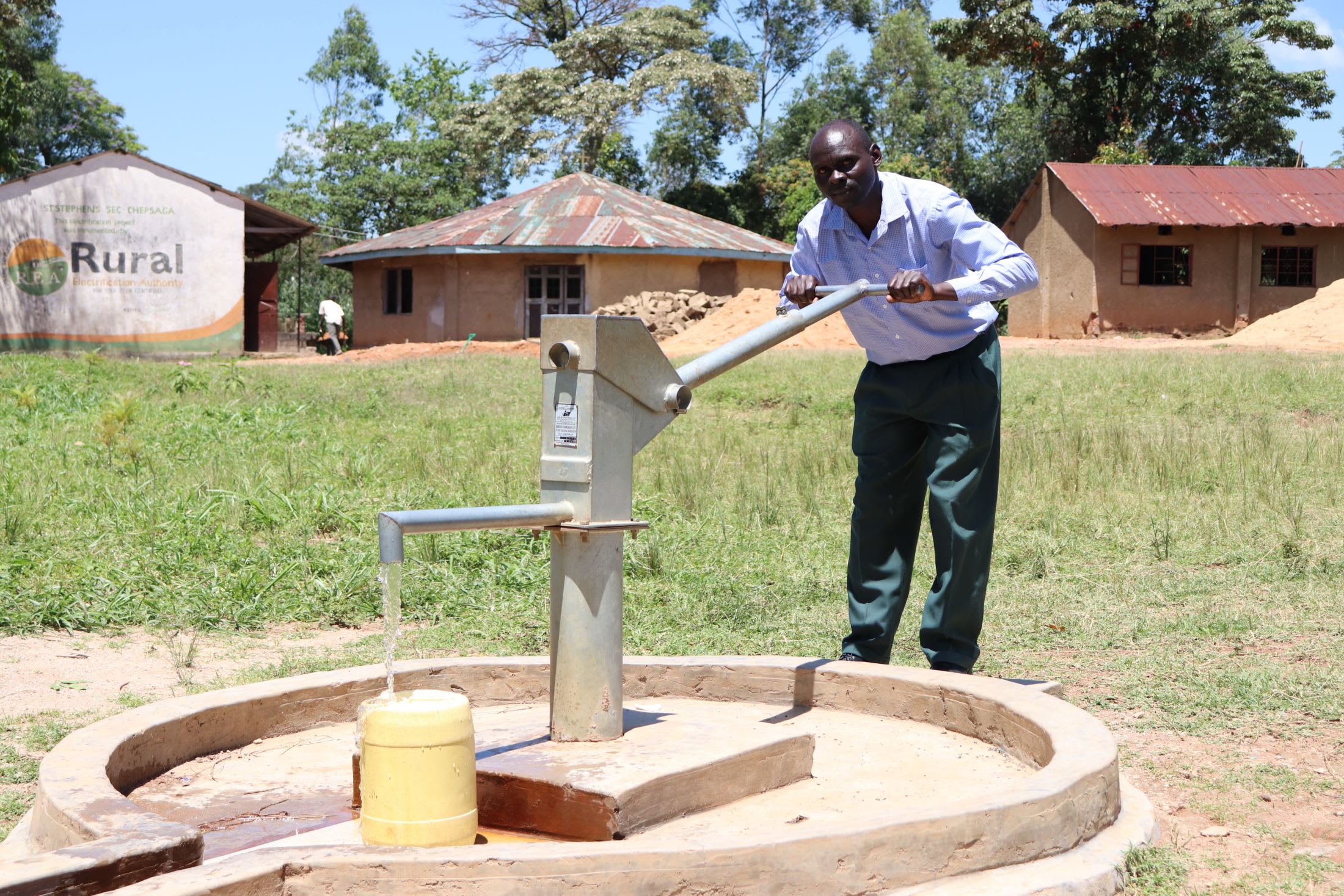


 Borehole Well and Hand Pump
Borehole Well and Hand Pump
 Rehabilitation Project
Rehabilitation Project












